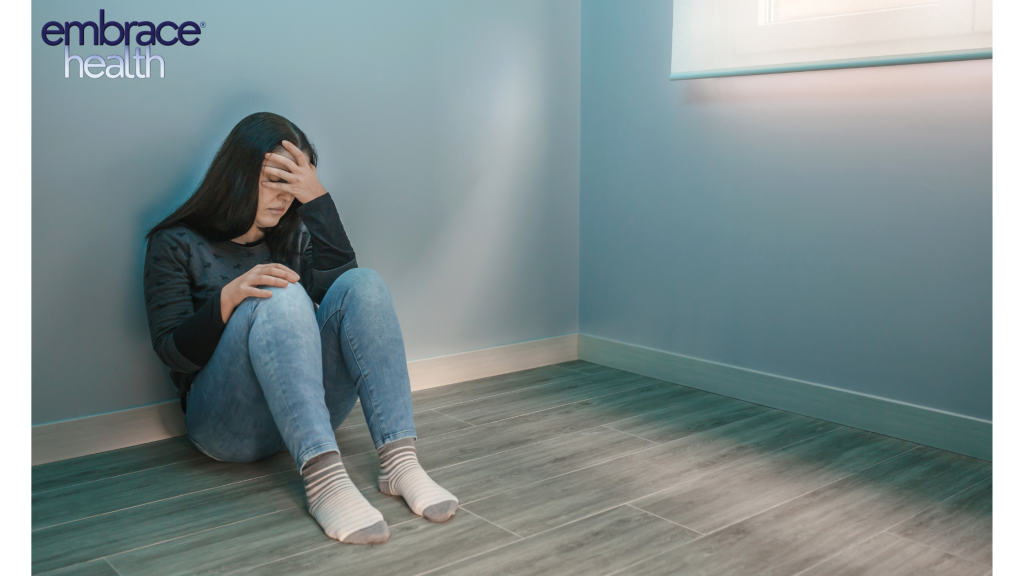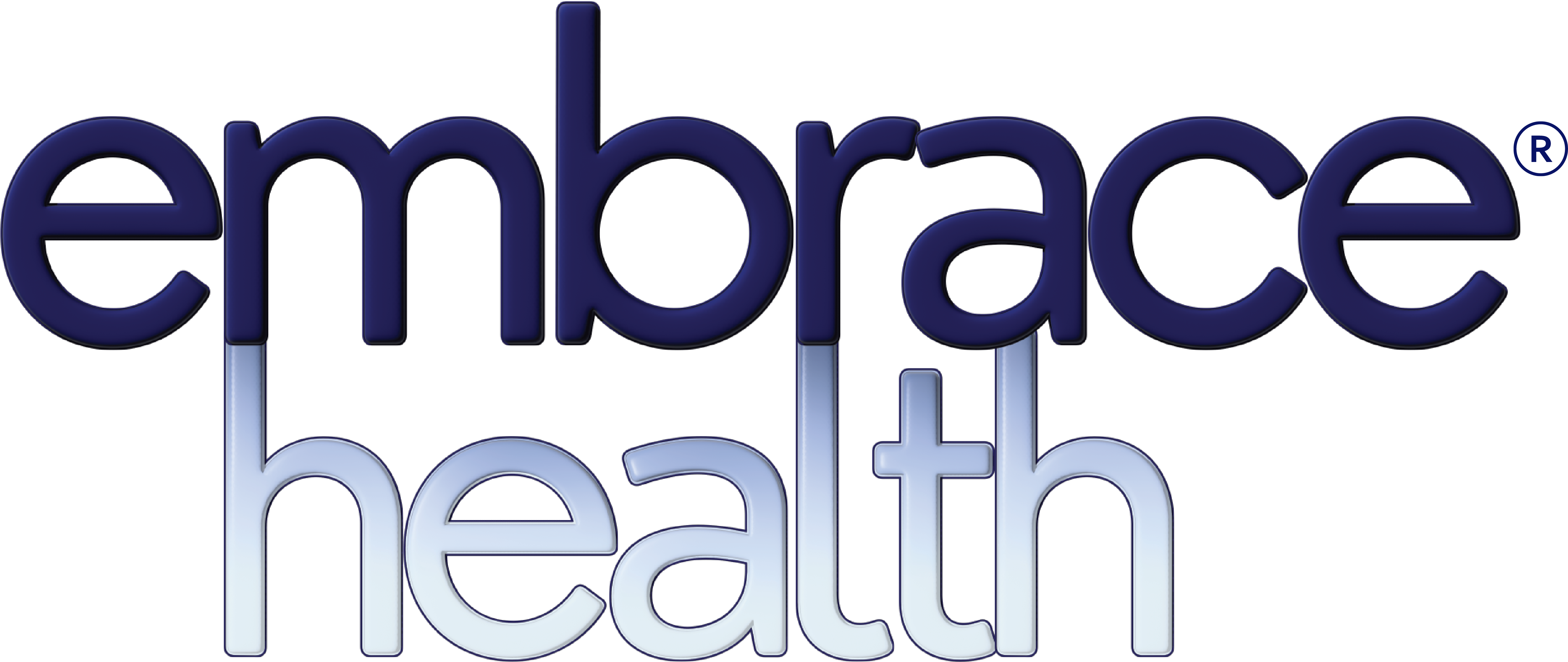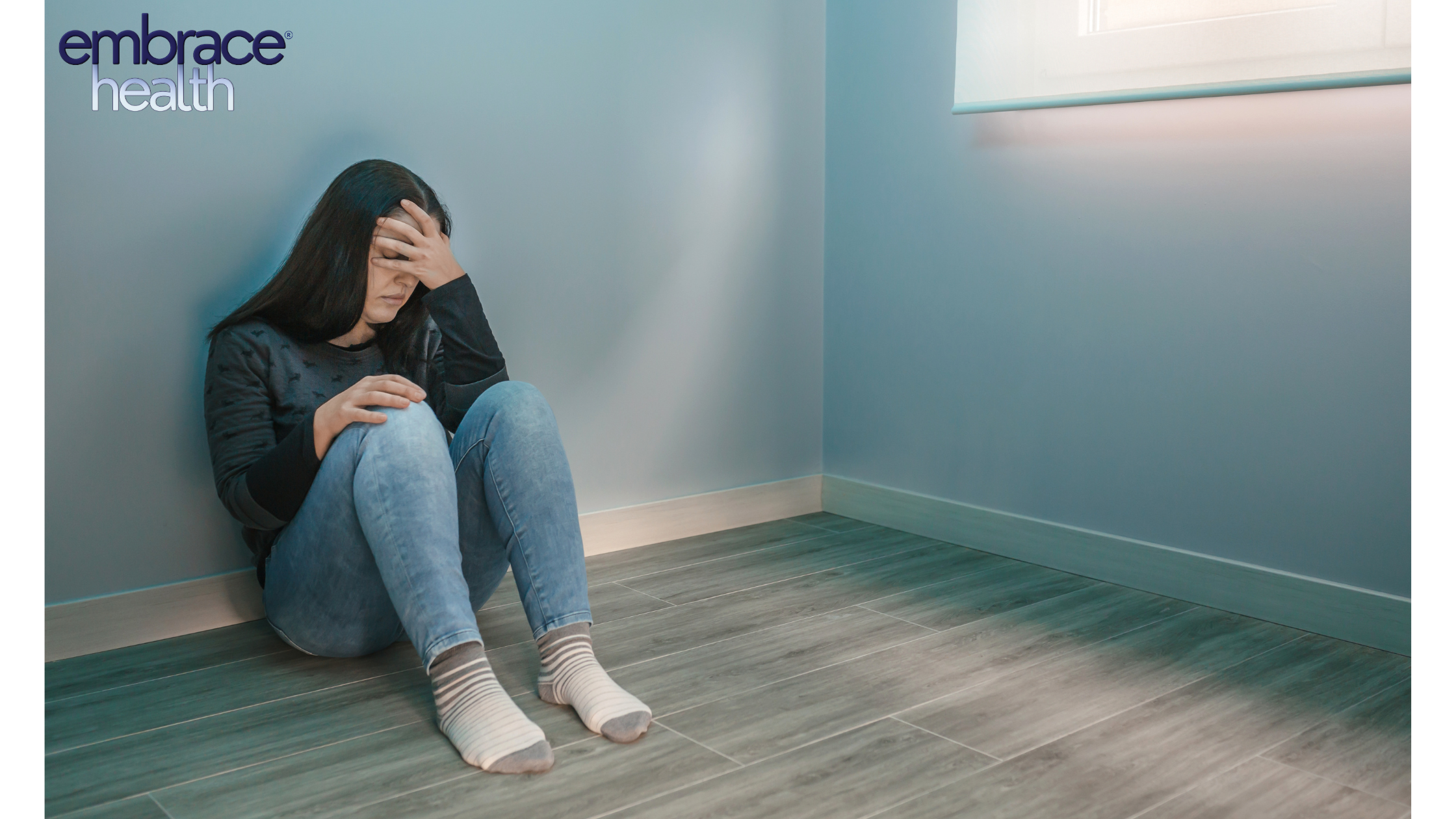Burnout is a chronic condition, often recognized as a combination of exhaustion, cynicism and reduced professional efficacy. Burnout is a serious behavioral health issue distinct from stress or depression. It’s a state of physical, emotional, and mental exhaustion that makes everyday life feel overwhelming. Something you once enjoyed or managed with ease suddenly feels unmanageable or out of control. When you experience burnout, you may find yourself going through the motions, but joy and energy are missing.

The World Health Organization recognizes burnout as an “occupational phenomenon,” and research shows it touches every part of life, from our workplaces to our homes. Burnout affects individuals, families, communities, and workplaces. The good news is that there are ways forward through awareness, balance, and boundary setting.
Get Help With Burnout Today
At Embrace Health, our team of therapists and psychiatric providers help people develop the coping and communication skills to better manage symptoms and causes of burnout, depression or anxiety so they live happier, healthier lives. Schedule a free consultation today to learn more about how Embrace Health can help you.
What Does Burnout Look Like?
Life asks a lot from us. Work deadlines, family responsibilities, community obligations, and somewhere in the mix, we are supposed to take care of ourselves, too. When the load feels unending, many of us find ourselves in the grip of burnout.
Here’s a somewhat typical story of burnout. You used to look forward to your mornings, the rhythm of making coffee, getting your kids ready for school, and settling into your job. Lately, those same routines feel like climbing uphill. You wake up already exhausted, your head heavy with thoughts of deadlines and obligations. Small things, like an email you forgot to answer or a grocery run that slipped your mind, now feel overwhelming. By the time you get home, there’s little left for your family or yourself. You may tell friends you’re “just tired,” but deep down you know it’s more than that.
Burnout doesn’t arrive overnight. For many, the body signals trouble long before the mind catches up. Common signs of burnout include:
- Physical symptoms: headaches, stomach issues, body aches, frequent illness.
- Emotional changes: irritability, sadness, isolation, or feeling detached from the people around you.
- Disengagement: simply “going through the motions” with little motivation or enjoyment.
“By the time you cognitively understand it, your body’s been telling you for months,” said therapist Heidi Lohff, LCSW.
Burnout Beyond Work
Many people think of burnout as a workplace issue, and for some it is. Long hours, constant performance expectations, and pressure to be “on” can slowly drain our reserves. But burnout isn’t limited to the office.
- Caregiving: Whether caring for children, elderly parents, or both, caregivers often carry nonstop responsibility with little rest. The result is chronic exhaustion and sometimes unhealthy coping strategies.
- Parenting: Parenting burnout is real, even if it is rarely discussed openly. The never-ending nature of the role can leave parents depleted.
- Friendships: Relationships meant to support us can also become draining. When friendships lack reciprocity, emotional fatigue builds.
- Teens and young adults: Structured schedules and the constant pressure of social media push many young people into burnout before they even enter the workforce.
In short, burnout can happen in every season of life. It is not a sign of weakness. It’s a signal that your body and mind need care.
Why Balance Matters
Work-life balance is less about exact time management and more about making space for rest and meaning. Without balance, we lean too heavily into one area of life until the weight becomes unsustainable.
Balance can look like:
- Taking real breaks throughout the day.
- Making time for unstructured, restorative activities rather than only chores and obligations.
- Allowing yourself to say “no” without guilt.
- Checking in on your energy as often as you check your email.
When balance is neglected, burnout thrives. When balance is protected, resilience grows.
The Power of Boundaries
Boundaries can be as simple as saying “stop” or “no,” but there are many ways to draw and enforce them. They are clear lines that protect your time, energy, and well-being. Without them, demands creep in until you have nothing left to give.
Healthy boundaries might sound like:
- “I am not available after 6 p.m.”
- “I can help, but only for an hour.”
- “I need time for myself this weekend.”
As Lohff pointed out, many of us, especially women, dismiss our own signals until burnout has already taken root. Boundaries are one of the strongest tools to change that story.
Moving Forward
If you recognize yourself in these descriptions, know this: you are not alone, and you do not have to keep running on empty. Burnout is common, but it is not permanent. Small changes, such as a boundary here, a rest there, or an honest conversation with someone you trust, can begin to restore energy and joy.
At times, you may need extra support. That is where Embrace Health comes in. Our providers offer therapy and psychiatric care designed for real life, with flexible telehealth options and clinicians who truly listen.
Life can feel heavy, but you do not have to carry it all alone.


